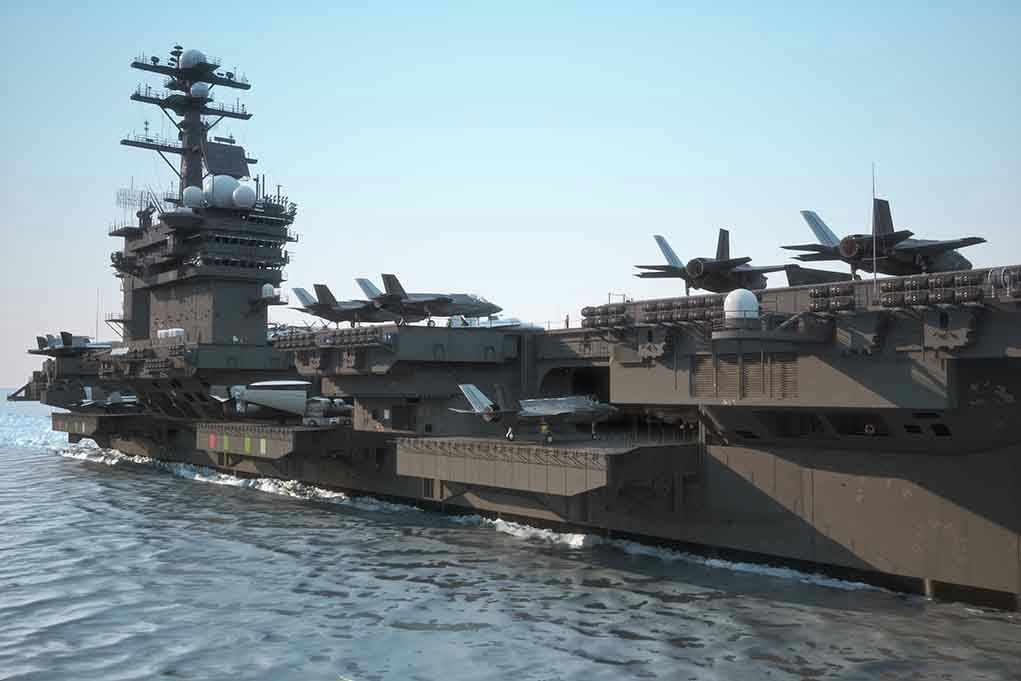
President Trump deploys three advanced Aegis destroyers to Venezuelan waters in an unprecedented military escalation against Latin American drug cartels, marking the boldest action yet in the war on narcotics trafficking.
Story Highlights
- USS Gravely, USS Jason Dunham, and USS Sampson deployed for multi-month counter-narcotics operation
- Trump fulfills campaign promise with aggressive military action against cartel threats
- Mexico’s President Sheinbaum rejects U.S. military intervention, creating diplomatic friction
- Advanced warships signal unprecedented escalation in America’s fight against fentanyl crisis
Trump Takes Military Action Against Cartel Terror
President Trump authorized the deployment of three Aegis guided-missile destroyers to waters off Venezuela as part of his administration’s comprehensive strategy to combat Latin American drug cartels. The USS Gravely, USS Jason Dunham, and USS Sampson represent America’s most advanced naval technology being brought to bear against organizations the administration has designated as foreign terrorist organizations. This decisive action demonstrates Trump’s commitment to protecting American communities from the devastating fentanyl crisis.
Strategic Military Assets Counter Cartel Operations
The destroyers will remain in the region for several months, disrupting maritime drug trafficking routes that cartels use to smuggle narcotics into the United States. These advanced warships possess sophisticated radar and weapons systems typically reserved for major military operations, underlining the seriousness of the threat posed by drug trafficking organizations. The deployment represents a significant escalation from traditional Coast Guard interdiction efforts to full naval military engagement.
Regional Sovereignty Concerns Challenge U.S. Operations
Mexican President Claudia Sheinbaum publicly rejected any suggestion of U.S. military intervention on Mexican territory, highlighting the diplomatic complexities surrounding Trump’s anti-cartel campaign. Her opposition reflects broader Latin American resistance to what regional leaders perceive as U.S. overreach, despite the clear threat cartels pose to American communities. This diplomatic friction underscores the challenge of securing international cooperation while protecting American interests from foreign criminal organizations.
Military Law Enforcement Raises Constitutional Questions
Legal experts debate the constitutional implications of using advanced military assets for law enforcement purposes, particularly regarding extraterritorial jurisdiction and international sovereignty. The deployment tests traditional boundaries between military action and domestic law enforcement, raising questions about the scope of presidential authority in combating transnational criminal organizations. However, the designation of cartels as foreign terrorist organizations provides legal justification for military engagement against these threats to American security.
Operation Targets Fentanyl Crisis at Its Source
The naval deployment directly addresses the ongoing opioid and fentanyl crisis that has devastated American communities, with cartels identified as the primary source of these deadly substances. Trump’s approach recognizes that traditional law enforcement methods have proven inadequate against sophisticated criminal organizations that operate with military-level capabilities and resources. This military response acknowledges the national security dimension of the drug crisis and the need for proportional defensive measures to protect American lives.
Sources:
US destroyers head toward waters off Venezuela as Trump aims to pressure drug cartels – Military.com
US Destroyers Head Toward Waters off Venezuela as Trump Aims to Pressure Drug Cartels – TaxTMI











